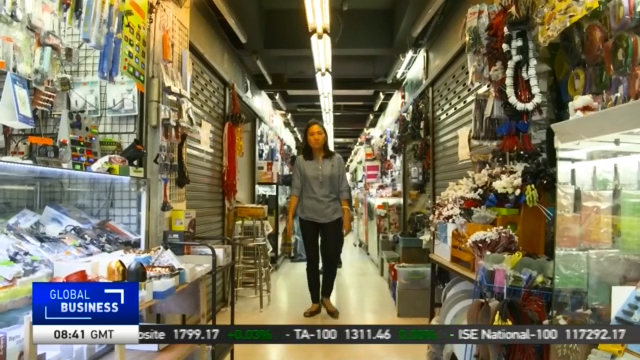
17:23, 11-Sep-2018
Impact of Trade Tensions: Supply costs pushing Thai companies closer to China
Updated
16:45, 14-Sep-2018
03:22

Concerns are growing in Thailand that the trade spat between China and the United States could lead to an all-out trade war. And while Thai companies have seen little impact from the 'tit for tat' tariff exchange, it could cost them billions of Baht in 2019 and push them closer to China, as Tony Cheng reports.
A 3D print out of a sitting Buddha, the cutting edge of Asian technology. This is Ban Moh plaza where the IT boffins in Bangkok come for their supplies. But you'll find little here from the United States, despite its reputation as the home of the biggest IT companies in the world. The traders here say the salesmen that used to supply American components no longer come and the prices are too high.
WARD SOMMANAWAT IT TRADER "I want to get parts from the US but it's difficult to order and it's more expensive. The US brands certainly have good quality but the shipping and overall price is more expensive."
That's not a problem, however, because there is an easy and cheap source of everything they need.
TONY CHENG BANGKOK "The traders here say they're not concerned about an escalation in the US-China trade tensions, because although they'd like to buy stuff from the United States it's just way too expensive and everything here, although it's at the cutting edge of technology, is all from China."
So far this year, the tariffs traded between China and America haven't had much impact on Thai exports. But economists are predicting problems next year, as Chinese demand for components declines or Chinese products flood the Thai market instead of heading for the US. And others see a full-blown trade war as inevitable, because US motivation appears to have less to do with trade, and more with satisfying Trump's support base ahead of 2020 elections.
DR. SIWAT LUANGSOMBOON, ASST. MD KASIKORN BANK RESEARCH CENTER "I think the impact of the trade war will be felt all over the world, and International trade will decline and go downhill, and that affects a lot to the export-orientated countries in ASEAN."
And some feel the trade war may be hiding deeper hostilities surfacing now that President Trump's personal agenda is coming to the fore.
PROF. THITINAN PONGSUDHIRAK, DIRECTOR INSTITUTE FOR SCIENCE AND INTERNATIONAL SECURITY "China is a natural successor to the soviet union, adopting Marxism, so this is very much against the values that the US stands for so in the broader context, I see a much bigger conflict and rivalry than just a trade war."
It's not just Thai companies that are finding that a problem. President Trump has called for a boycott of Harley Davidson because of its new factory in Thailand. But the iconic motorcycle manufacturer is pressing ahead with its plans. For a business with global ambitions, the choice between serving a nostalgic past, or attracting a new customer base is hardly a choice at all. Tony Cheng CGTN Bangkok.

SITEMAP
Copyright © 2018 CGTN. Beijing ICP prepared NO.16065310-3
Copyright © 2018 CGTN. Beijing ICP prepared NO.16065310-3